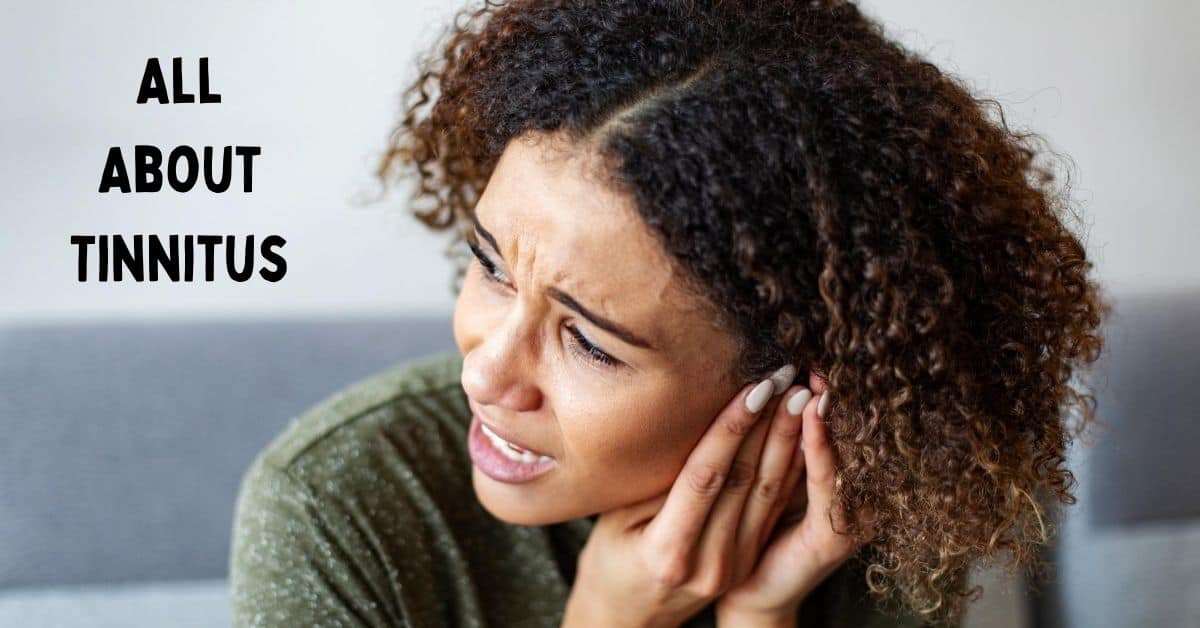- The Advantages of Rechargeable Hearing Aids - July 16, 2024
- How to Enjoy Music Festivals While Protecting Your Hearing - July 3, 2024
- Over-the-Counter Hearing Aids vs. Custom Hearing Aids - June 28, 2024
Tinnitus is one of the most frequently experienced medical issues in America, affecting 15-20% of the population. It commonly accompanies hearing loss, and is the most common affliction for veterans returning home.
Tinnitus is most commonly experienced as a high-pitched ringing in the ears, but it can also appear as a clicking or buzzing sound, humming or hissing, or even roaring. Any sound that recurs and exists only in your own head can be considered tinnitus.
While anyone who has had it can attest that tinnitus can be extremely annoying and, in some cases, even debilitating, it is not life-threatening and usually isn’t linked to any serious medical concerns. While it usually worsens with age, in some cases it can be cured by identifying and treating an underlying condition. Tinnitus itself is a symptom, not a disease, so success with treatment varies depending on what can be discovered as the cause.
Subjective vs Objective Tinnitus
Most of the time, the sound is created somewhere in your auditory path by electrical means that won’t show up outside your own brain. This is called “subjective tinnitus.” There is also a less common type called “objective tinnitus,” where your doctor will actually be able to hear the sound as well. This latter type can be caused by abnormalities with the three tiny bones in the middle ear, a blood vessel problem or muscle contractions.
No one knows exactly what causes subjective tinnitus, though it often occurs alongside hearing loss. This has prompted some to consider that it might be a kind of “phantom limb,” where the brain generates the tinnitus in the absence of sounds it was once used to receiving. It’s also associated with high stress levels, and can sometimes subside when the sufferer brings their stress level under control.
Medicinal Causes
There are over 1,000 prescription and OTC medications, herbs and chemicals that can bring on tinnitus. Consider what medications you’re on, what herbal supplements you take, and what chemicals you’re exposed to on a regular basis or have been exposed to recently. Certain combinations of these substances can also make tinnitus much worse. In most cases, when you stop taking the drugs or discontinue your exposure, the tinnitus will subside. If you think you have tinnitus caused by medicine, herbs or chemicals, consult your doctor.
Treatment: Should You See Your Doctor?
While tinnitus is not life-threatening, there are some situations in which you might want to see your doctor. They may be able to see the problem and solve it, alleviating your tinnitus and, if it is the result of a curable underlying condition, making you well again. You should see your doctor if:
- Tinnitus comes on quickly and seemingly for no reason.
- Tinnitus is accompanied by dizziness and obvious hearing loss.
- The onset of tinnitus follows an upper respiratory tract infection and doesn’t subside within a week.
Masking
The most common and most frequently successful treatment for tinnitus is “masking,” whereby a real sound is created in the atmosphere or headphones to cover up the tinnitus. Modern hearing aids can also be fitted (programmed) to provide masking sounds at the wearer’s discretion.
For most people, tinnitus is the most problematic when they lay down to sleep, so masking can be especially important at this time. Collections of CDs of masking sounds are available, but there are also many YouTube videos of fans, white noise or nature sounds. Smartphone apps are also available that let you combine different sounds to create the most pleasant masking sound you can imagine.
William Shatner, who began experiencing tinnitus after an explosion on the set of Star Trek, has said that masking is the only way he receives relief from it.
Healthier Lifestyle
Tinnitus tends to affect smokers and people with underlying cardiovascular conditions more often. It’s also been reported that women who drink 3-4 cups of coffee a day are less likely to experience tinnitus. Quitting smoking and adopting an anti-inflammatory diet such as the Alternate Mediterranean diet (AMED) or Dietary Approaches to Stop Hypertension (DASH) reduces the likelihood of not only tinnitus but also hearing loss, cardiovascular disease, joint pain and many other afflictions, especially those that tend to affect us as we age. There may be any number of effective treatments for stress that may also alleviate tinnitus, including meditation, mindfulness and cognitive behavioral therapy.
Schedule a Consultation
If you’ve been experiencing tinnitus or symptoms of hearing loss, it is important to schedule a consultation. Contact us today to learn more about our comprehensive hearing health services and the treatments we offer to help alleviate tinnitus.

